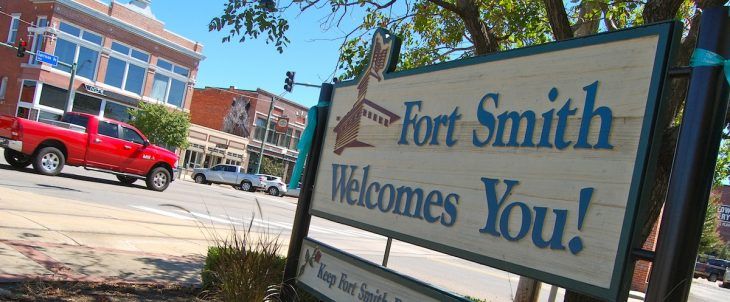Fort Smith Board sets pay increases as top priority for 2018, talks increasing revenues
by August 29, 2017 4:01 pm 978 views

The Fort Smith Board of Directors once again broached the “unpopular” topic of increasing revenue at a Tuesday (Aug. 29) study session. On the topic of city-wide budget goals for 2018, Directors Kevin Settle and Tracy Pennartz agreed that salary increases would need to be discussed.
“I think pay increases are a necessity, and I think we’ll directly have to look at revenue, and I don’t see any way around that. It may not be popular to talk about, but I think it’s our responsibility to talk about it,” Pennartz said.
Settle said the city needed to make pay increases a core focus of its effort toward a balanced budget since employees are “about four years” removed from the last merit increase.
Part of the need for additional funding sources is derived from 2018 revenue projections. Fort Smith Finance Director Jennifer Walker said the city anticipates only 1% growth in sales tax revenues, 1% in sanitation, and 2% in water and sewer. The street maintenance, property tax, and franchise fee funds, are all projected at 0% with franchise fees possibly seeing a reduction due in part to falling oil and gas prices.
Walker presented an initial plan to the Board prioritizing pay increases as fourth on the list of 2018 spending priorities. The Board seemed to be in agreement the increases be a top priority in place of additional LOPFI contributions, which swapped places since the city has a 13-year window before the local police and fire pension fund for plans prior to 1983 becomes insolvent.
Numbers two and three on the 2018 spending priorities list included police department and sanitation equipment, respectively. The city’s police department has a double need in staffing and outdated equipment. The department operates with obsolete technology that includes dispatch network hardware, computers, portable radios, mobile car radios, and backup dispatch radios. Furthermore, 30 of 51 vehicles are over 100,000 miles and eight are over 200,000 miles. The department previously presented the case it struggles to recruit against other markets because of competitive pay. Sanitation suffers from outdated equipment as well.
At a June 9 study session, Pennartz suggested the city revisit a $770,000 subsidy it provides each year to the Fort Smith Convention Center as a way to address police issues. The Convention Center could be funded through a possible prepared food tax instead. Such a move could be a hard sell for Fort Smith voters, who rejected such an attempt in a November 2011 special election, with approximately 62.7% voting against it.
Director Mike Lorenz, at the same study session, acknowledged the city had a revenue problem that would need to be addressed through increased taxes or otherwise.
“I’m not a fan of sales tax, but how do we pay for the things that our citizens want? I think that’s the key thing we’ve got to remember. We either provide the services and have the revenue to pay for it, or we don’t provide the services. Those are our only two options,” Lorenz said.
The next budget review date with the Board is scheduled for Oct. 17.
